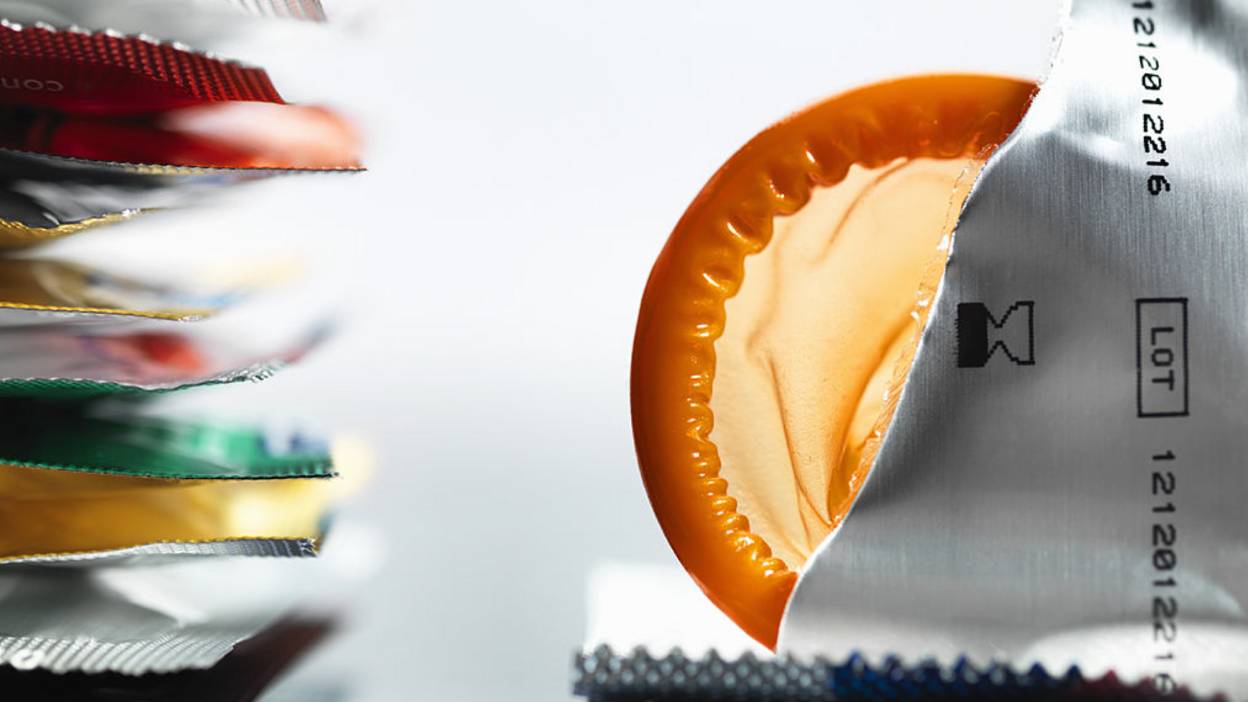 Getty Images
Getty ImagesThe male 'pill' is coming, and it’ll change the way you do too
MEN, this is a PSA (penile service announcement).
For the first time since the condom, a medically approved form of male contraception is expected to hit the market - due before 2020. But, for the first time in 55 years, will family planning finally become an equal gender concern?
The introduction of the pill in the 1960s became the catalyst for a decade of free love. Taboos around sex and, more importantly, contraception, were momentarily broken: women could get ~one~ prescription, rather than have to visit their doctor to re up their diaphragm and spermicide. Women were truly in the sexual driving seat.
 getty
getty
And men? They did what they always do: put their feet up…
“From my experience it's always been the girl’s problem to go on the pill. Guys have always been so flippant about condoms.” Says Zara (29). “Half the time they don't even want to use them, because it doesn’t ‘feel as good’. Well neither does giving birth to a 9lb baby!”
Weirdly, while it's being given the title 'the male pill', the first male contraceptive is actually likely to be an injection. Vasalgel, a polymer injected into the sperm ducts blocks the little buggers from getting out, and could last as long as (if not longer than) the IUD.
It’s been proven to be about as effective as a vasectomy (>99%) when tested on the kings and queens of animal sex (rabbits) but is easily reversible compared to getting the snip – you just need another injection that dissolves the polymer, rather than having your balls reattached. It also seems to be the most acceptable option for long term male contraception ever conceived.
 Getty Images
Getty Images
When researchers in Germany polled men on whether they would use a contraceptive ‘capable of preventing sperm production’, over 50% of the 9,000 polled said yes. So I decided to ask a few of my mates whether they’d be willing to get the injection…
“My fiancé struggles with the implant and the hormone imbalance sometimes.” Says Chris (29, engaged).
“There's a real unequal weighting in contraception, and it's just assumed in long-term heterosexual relationships, post-condom stage, that the woman has to use one of the various methods. At the very least, I think this opens the door for guys to be more responsible.”
“I always wear a condom and usually get checked out regularly.” Josh (22, single). “I don't know whether I would have the Vasalgel procedure. I guess if friends of mine got it done, it would make me think about it more.”
“Obviously I'd still advise wearing a condom, but having that extra parameter is reassuring and the fact it doesn't have to be from the woman, is refreshing.”
So the tone towards the male pill, from those I've spoken to, appears to be pretty positive. But with the question still being more hypothetical than practical at the moment ...will we really be as keen for it in reality? Or are we all mouth and no trousers?
Well, it depends what we’re being asked to do down there.
Language forms the foundations of society (and relationships within it), and phrasing is fundamentally important. The phrasing of the male “pill”, on first reading, was severely off-putting to some of the men I talked to, as many equated it to the oral contraceptive. Men really don’t want to mess with their hormones (but are quite happy for women to deal with it).
The prospect of headaches, mood swings, weight fluctuation - all noted side effects of female chemical contraception - were major turn-offs for every man I talked to. And, given the stereotypes of women they’ve lead to, you can see why. But (luckily/tragically) they’re something men will never have to deal with with Vaselgel. After explaining how the procedure actually worked - without messing with their hormones - they all came round to the idea.
 Getty Images
Getty Images
Looking for anyone who might take a more negative view, I took to browsing the Red Pill subreddit, a forum for men’s rights activists who spend their days discussing ‘strategies’ for facilitating sexual encounters with women (eye roll), and the various ways men are disadvantaged by today’s society (eye rolls into back of skull, am blind forever).
But even here, I found people generally in favour of a male pill - even if not for the most open-minded of reasons (eg "it will allow men to protect themselves from predatory women” and "No more women 'forgetting' to take their pills". My. God.)
In the face of such overwhelming support (or at least lack of opposition), it’s hard to see why it's taken so long to develop long-term male contraception.
The answer? Male entitlement: a mix of societal conditioning, economics, and basic biology. The fact is that an accidental pregnancy has a much higher social and economic impact on women than men.
 Getty Images
Getty Images
“When a woman has an injection or takes a contraceptive pill she frees a man of the responsibility to take precautions and responsibility for his actions.” Lindon (26). “The status quo has placed responsibility for long term contraception largely on the shoulders of women, who also bear the burden of the physical and emotional consequences.”
Women have to carry the child. Women feel the pressure to drop out of school, or put their career on hold, due to societal attitudes to pregnancy. Women are expected to bring up their offspring. Speaking plainly, in the eyes of the classic male, there was no need for male birth control because women had it covered, and if they didn’t they could always leave.
But, over time, societal attitudes have shifted towards greater gender equality. Women are legally (if not practically) protected against discrimination in the workplace. Society expects men to be active parents, and to provide child support if they opt out. Men want more reproductive responsibility.
The science of male birth control is a reflection of this change, and it seems like men are up for it. Just how many men actually end up getting a prick in their prick remains to be seen.
Bring on the male pill.











